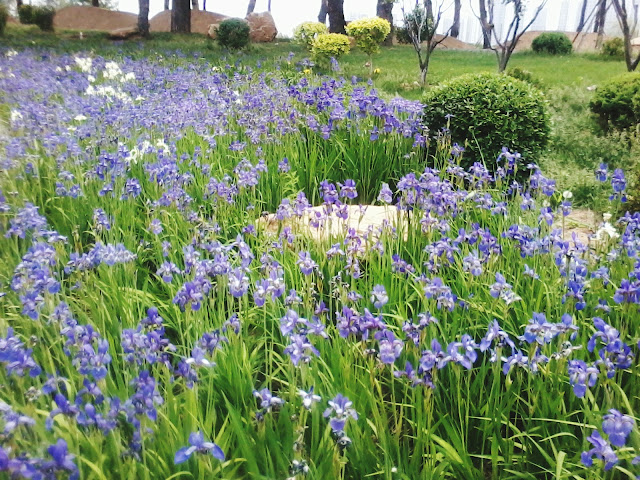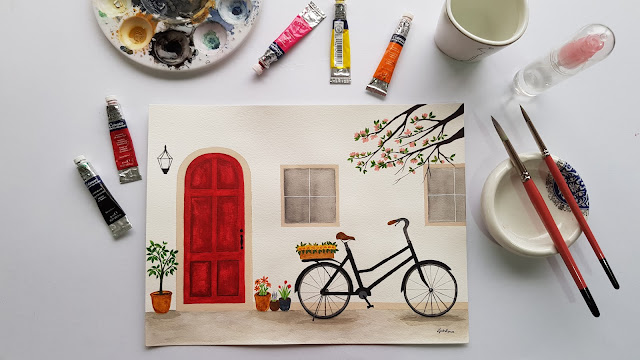4 INTERESTING JAPANESE CONCEPTS THAT YOU SHOULD KNOW
1. Inemuri 居眠り
In most countries, sleeping while you are on duty is usually frowned upon or an actual ground for termination. However, in Japan, this is actually considered as a sign of diligence.Why? Japanese people believe that being present (though you are sleeping) is still much better than being absent from work or school. It also shows that you have exhausted yourself doing too much work or studying the night before, yet you still choose to show up in the office or school instead of calling in sick. When you take naps, it means you're a hard worker! This concept is considered customary in their country. Apparently, you are almost invisible even if you doze off in public places or public transportation.
Are you tempted to move to their country now? Don't worry, you might wanna try this gradually and see the results in your performance. I myself have been doing this lately. It's true that once you get older, you will have fewer chances of getting your much needed shut eye on a daily basis. You're really lucky if you can still get 8 hours of sleep as an adult. But then again, it still depends on your physical activities, lifestyle and how your system works. Just because you're sleeping for a long time doesn't always mean you get high quality sleep. I need 9 hours of uninterrupted sleep to be able to function normally at work. Anything less than that makes me cranky and I perfectly know that that's not good for the type of job that I have. But in case I don't get my minimum sleep requirement, I practice inemuri. I take 15-20 minute shut eye instead of reading a book or using Facebook during my breaks to recharge and it works like magic!
When I'm at my dorm, my naps usually last for about 2 hours. (I know, I'm unbelievable!) But that's not how it's supposed to work. Taking naps for too long would actually defeat its purpose. It would leave you groggier than ever! The key to this power nap is having just the right amount of it.
2. Shinrin-Yoku 森林浴
Have you ever tried walking at a garden or a park even just for a few minutes and felt so much better right after? That's because trees give off organic compounds that help us get more of that NK (Natural Killer) cells that protects us from something as serious as cancer. The English translation of shinrin-yoku is 'forest bathing'. Japanese people developed this concept way back in 1980. They spent a lot of time researching about the physical and mental health benefits of spending time with nature or forests. It is scientifically proven that spending minutes or hours of leisure walk around a natural area is restorative and rejuvenating. This is exactly what our sleep-deprived, over-worked and unmotivated society needs these days.
Ever wonder why Millennials nowadays would rather climb mountains rather than climb corporate ladders? Here's one of the answers - humans naturally crave for that feeling or sense of being 'home' and they can only get that when they are closer to nature. After spending a long time in a toxic environment, we tend to subconsciously go home to recover and rest. The forest, the mountains, the bodies of water - this is our natural home.
3. Ikigai 生き甲斐
With the exception of your alarm clock, what makes you jump out of bed in the morning? What makes you want to get up from your bed and be awesome for the next 24 hours? What are the things or activities that you don't have to force yourself to do?
I've been aware of this concept for a long time now though I didn't know about the Japanese term for this up until recently. During my late teenage years and early twenties, I didn't know what I want to do and where I want to go. I had a limited vision. All I care about that time was to get through college (alive!) and get out of my parents' and relatives' roof. That's it! I just want my OWN life. But when I got that, I felt like I hit a brick wall and I've been constantly asking myself "NOW WHAT?"
I got my freedom, I got my own life, but where do I go from here? What's next?
I spent years of my life trying to 'find' myself. I keep on going to different places trying to see if I can make a life and a living here and there. It was a literal trial and error kinda life but I have learned to love every single bit of it. The joy, the pain, the hardships, the laughter, the sorrow, the waiting, the hating and everything in between. Eventually, I just came up with very simple words - happiness and contentment. All I want to do is be happy, and I realized I am willing to do whatever it takes to help the people I love to feel the same way. This has been my mission ever since I realized what I want. No, I can't do it all the time, but every time I start sulking, I do whatever it takes to turn my life around and steer it to the right direction. This is what I see myself doing for the next several years of my life. This is my ikigai or my 'reason for being'. Other translations for this Japanese concept are 'thing that you live for' and 'the reason for which you get up in the morning'.
The reason we have a lot of lost boys and girls these days is the absence of ikigai. I feel sorry for people who say they feel empty or worthless and that they are pretty much just going with the flow or wherever the wind takes them. During your younger years, it is quite acceptable to not know where you're heading. However, if you reach a certain age, the age of maturity, you must find your ikigai and do your best to move towards it.
4. Wabi sabi 侘寂
No, this is not the longer version of 'wasabi'. This is a Japanese aesthetic concept that means acceptance of things that are not permanent and not perfect.
"Nothing lasts, nothing is finished and nothing is perfect."
Most of the time, people are very quick to judge based on outer appearances. I know that it's hard not to get into this hype of 'whatever looks good is GOOD and a must-have'. We always have to feel like we have to upgrade our gadgets to the latest model, update the wardrobe, revamp our lifestyle just so we can say that we are keeping up with the trends. Everything has to be in order, everything needs to be new. We only want something if it's PERFECT. But you know what? I think constantly chasing after perfection is a life-long journey to dissatisfaction. I'm talking about mostly material things here. I think it's okay to constantly challenge your mind and keep on learning new lessons as you age. Learning new concepts and ideas - things that cannot be purchased by money - that's fine! Always aim for something new and keep the ones that are useful to you. But when it comes to tangible things, seriously, how do we measure their beauty? What is good enough?
Wabi sabi is a Japanese philosophy that is all about appreciating the beauty of something that is raw, flawed, scarred, chipped, cracked and aged. It is the art of seeing things and their value based on how gracefully they stood the test of time, not based on how polished they are. I am very much amazed by this concept because it smashes my 'perfectionist' mentality right to the very core. It took a lot of that metaphorical weight on my shoulders to realize that it is possible to accept and fall in love with the natural and imperfect world. It is one of the most human thing you can ever do!
The next time you start judging something (or even someone!), see if you can practice wabi sabi.







They really have nice concepts we can learn from. I knew about Ikigai, let's talk about it next time Cyndrel. Haha. Just wanna share another Japanese concept I know. It's called HoRenSo. :) it's interesting. Maybe it's one of the reasons many Japanese companies are successful globally. Hehe :)
ReplyDeleteHi Faye-chan!!! Thank you SO much for reading this post! Good to know that you find them interesting as well. Growing up, I was kinda brainwashed that Japan or anything Japanese was supposed to be hated, because of our history. It was really hard for me because I love ANIME! Haha! We can't rewrite our history and our parents weren't even born that time, so, I really don't see the point of hating something or someone who never hurt me directly. But now that I'm older, I'm glad that I can express myself more. And one thing I really admire about them is the way they respect and connect with nature. It's a bit ironic because they are known as one of the best innovators in the world, yet their concepts have nothing to do with technology or anything modern.
ReplyDeleteLet's talk about your 'ikigai' soon! Hahaha! Though might wanna skip coffee next time because I'm having crazy palpitations! :D
Awesome article! I'm really into the idea of Inemuri lol I wish my teachers back in high school were. Thanks for doing the research and putting this together :D
ReplyDeleteThank you SO much for reading it, Valeri! I love that concept too, even now! Hahaha~ Glad you liked this post. :)
Delete